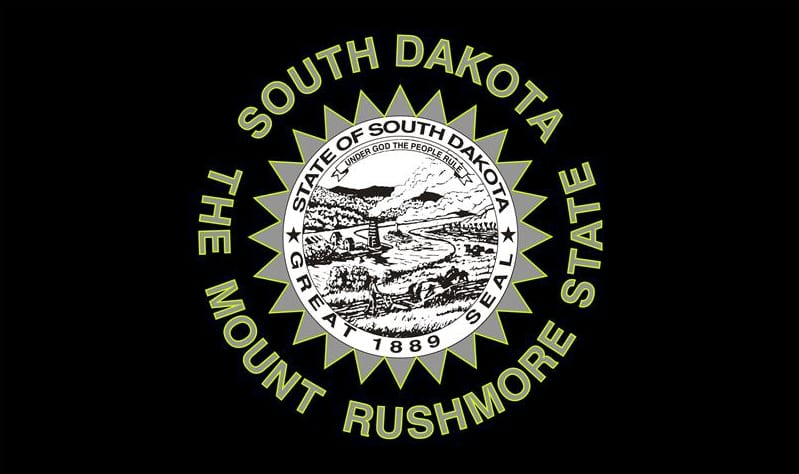

We are Attorneys and We are Riders
We Represent South Dakota Cyclists
Had a Bicycle Crash in South Dakota?
Contact Ben Dodge to see if the bicycle crash lawyers at Bike Accident Attorneys (BAA) can help. Unlike other lawyers who attempt to represent cyclists, our BAA lawyers actually ride and race their bicycles as well as appear and win in court. Most attorneys are just pencil pushers. We are court room litigators who are passionate about riding our bikes and we have associated local counsel in other states to allow us to help you in your state. Based on our expertise and experience we have also been admitted in other states to appear in court for our bicycle crash clients on a case by case basis. We can help you directly or ensure that you get the quality help you need in your state. Contact Ben Dodge now to see how we can protect your rights.
3 Tips on Choosing the Best Bicycle Crash Lawyer and Avoid Being Scammed
So how do you know if you have the best lawyer? There are 3 things to investigate when hiring a bicycle lawyer that can help you avoid a scammer. Some of that depends on what you think the “best” really means. To me, it is simple. The “best” lawyer will get you to the most advantageous position possible with as little cost as possible. That’s it. Nothing else to it. I have seen too many lawyers give up or miss out on incredible opportunities for their clients because of their own egos arguing the irrelevant issues or pushing too hard in a direction that only generates their own fees as opposed to the results the client would rather have.
The most advantageous position is sometimes not even what the client comes in asking for. I can’t tell you how many times I probably talked myself out of a job in an initial consult because what the client wanted actually puts them in a worse position and I wasn’t afraid to tell them so. It would have been so much easier to just tell them what they desperately wanted to hear, help them feel heard and let them vent a little. All just tell them we better hurry up and rush to court so they can be vindicated. When in reality, that won’t help them at all. So that is what many lawyers do- they try to figure out what the client wants emotionally and then sell them a legal service that matches that emotional need and of course charge them for it based on whatever they think the client is able to pay.
Obviously not all attorneys are this cold-hearted. Many of us actually care. Many of us strive to do right by the client as opposed to just trying to do right by the pocket book.
Here are some general things to watch out for when looking for an attorney, especially a bicycle accident lawyer (I don’t like the word accident, I prefer “crash” – but most of the world uses the term accident and I understand why, so I sue it too). Here are the issues to watch out for:
1) Specific Knowledge
Do they have the specific knowledge required to handle your case? Just because they graduated from law school doesn’t mean they know anything about cycling! In fact, in my opinion, most of the country doesn’t know anything about cycling. It is crazy that all sorts of professionals from police offices charged with enforcing cycling safety to insurance adjusters responsible for finding fault don’t know anything about cycling laws. This is especially true with local rules, ordinances, and even more so with knowledge of local customs and implied expectations of cycling culture and more. Now fast forward to the moment when you are looking for an attorney to help you with your crash (your bicycle accident case) and you see a billboard on the side of the freeway, or a TV commercial, or even a Google search where the words cycling lawyer were used… How much specific knowledge of bicycle cases do you think they really have? Ask them how often they ride? Ask them what their favorite route is? Ask them if they could buy any bike on the planet what would it be and why? These questions will help you quickly identify if they are even remotely plugged into the cycling community and whether or not they have specific knowledge relating to cycling. Why is this important? SIMPLE- as a cyclist you already know that most people (drivers) hate that we are out on the roads. You already have an uphill court battle of public opinion. Being right on some traffic issue isn’t enough for us. Your lawyer must know this intimately in order to successfully navigate the complex negotiations of your case with the insurance company and opposing attorneys and then ultimately in a court room where you can bet no one on the jury will be a cyclist.
Also on the topic of specific knowledge. How many cases like this issue have they handled? What were the outcomes? How confident do you feel with their answers to these questions? Specific case knowledge is helpful. Do they have experience with the opposing insurance company? With that specific police department? With your judge? And on and on.
Specific knowledge is very helpful and you can’t buy it with expensive marketing on billboards, commercials, etc. It is earned with blood, sweat, and sometimes tears through years of experience.
2) Desk or Courtroom
The next thing to investigate is whether or not the attorney you’re thinking about hiring is a desk lawyer (I fondly refer to these lawyers as pencil pushers) or a courtroom lawyer. There is a need for all sorts of lawyers. But unless you are planning on having your bicycle accident attorney draft a will or some contract for you, then you want a courtroom lawyer not a pencil pusher.
I know this is a guess, but in my experience it seems like 95% of lawyers, especially the ones who end up on billboards and commercials, are just pencil pushers. Once their cases get to tough they refer them out to a real lawyer to finish the courtroom stuff for them. Most attorneys talk a big talk in their consult with potential clients about how good they are, but when push comes to shove and they have to actually prove it to you in a courtroom with you watching, their peers (opposing lawyers on the other side of your case) and in front of a judge and jury- they simply freak out and completely drop the ball or settle for less than you should ever take just to avoid the scary courtroom.
Don’t mistakenly hire a pencil pusher. Hire a bicycle accident lawyer who thrives in the courtroom. One simple question to help catch them off guard is ask them when is the last time they were in court? What was it about? What kind of hearing was it? What was the argument they proposed and made to the judge? How did it turn out? These simple questions will help you find out if they are pencil pushers or not. Their hesitation or odd answers are a dead give away that they are likely misleading you on their courtroom abilities and experience.
We are courtroom lawyers, sometimes even going multiple times per week to court. We file lawsuits, we don’t just write a few meaningless settlement letters and sell our clients on how good the settlement is- we prove it to our clients.
3) Do You Recognize Them from a Billboard or Commercial?
Yes I said that right, do you actually recognize them from a billboard or a TV commercial? Why is this even a thing? Well, it sounds harsh but those lawyers out there spending hundreds of thousands of dollars per year (for some they spend that per month) just to recruit new clients may be struggling to get their current and past clients to even refer to them… Yep, what if your lawyer was so good and you were so impressed that you happily sent business to him/or her? See how powerful that is? I’m not saying that everyone who advertises in our line of work is a horrible lawyer. What I am saying is that it is a bit suspect since advertising is NOT cheap and it begs the question as to why they have to advertise in the first place? Is their reputation with their own clients so bad that they have to find an alternative source to finding clients? Possibly. I’m one of those guys who avoids, in fact runs away from any professional I see on a billboard. I’d much rather consult a trusted friend and get their opinion as to whom I should see or NOT see based on their experience.
Not all lawyers who advertise are bad. But like I said, I personally run away from any professional on a billboard or TV commercial. A good old fashioned referral has always proved to be much better much more often. Just sayin’.

These are just 3 of the many things to look out for when you hire a bicycle accident lawyer. Call my office up and we can chat over the phone sometime about all the other million things to look out for like attorney billable hour quotas, bonus structures, professional reputation among peers, and so much more!
We are here for you. We got your back. We protect our own like you’re a member of our tribe. Good luck. Be safe out there and keep the rubber side down.
Contact Ben Dodge and let the lawyers in the Bike Accident Attorneys National Network help you. We will assist you in your case and/or find someone for you in your state that we can trust and recommend. We have your back. We are here for you.
#MyLawyerDoesntSuck


Need a Consultation?

South Dakota Bicycle Accident Statistics
Resident Population
865,000
Total Traffic Fatalities
116
Pedalcyclist Fatalities
0
Percentage of Total Traffic Fatalities
0%
Pedalcyclist Fatalities per Million Population
0
South Dakota Bicycle Statutes
§ 32-20B-1. Identifying number required on bicycle sold at retail – Violation as misdemeanor. A person engaged in the business of selling bicycles at retail may not sell any bicycle unless the bicycle has an identifying number permanently stamped or cast on its frame. A violation of this section is a Class 2 misdemeanor.
§ 32-20B-2. Operation on sidewalk or crosswalk – Rights of bicyclist – Duty to stop.
A person operating a bicycle upon and along a sidewalk, or across a roadway upon and along a crosswalk, shall have all the rights and duties applicable to a pedestrian under the same circumstances, except as provided in § 32-20B-3, and except that bicyclists must stop before entering a crosswalk or highway from a sidewalk or sidewalk area.
§ 32-20B-3. Operation on sidewalk or crosswalk – Duty to yield right-of-way to pedestrian – Violation as misdemeanor.
A person operating a bicycle upon and along a sidewalk, or across a roadway upon and along a crosswalk, shall yield the right-of-way to any pedestrian and shall give an audible signal before overtaking and passing a pedestrian. A violation of this section is a Class 2 misdemeanor.
§ 32-20B-4. Parking on sidewalk – Violation as petty offense.
A person may park a bicycle on a sidewalk unless prohibited or restricted by an official traffic control device or ordinance. The parked bicycle may not impede the normal and reasonable movement of pedestrian or other traffic. A violation of this section is a petty offense.
§ 32-20B-5. Operation on roadway – Riding close to right-hand curb required – Violation as misdemeanor.
Any person operating a bicycle upon a roadway at less than the normal speed of traffic at the time and place and under the conditions then existing shall ride as close as practicable to the right-hand curb or edge of the roadway. However, a person operating a bicycle may move from the right-hand curb or edge of the roadway to overtake and pass another bicycle or vehicle proceeding in the same direction, to prepare for a left turn at an intersection or into a private road or roadway or to avoid conditions including, but not limited to, fixed or moving objects, parked or moving vehicles, bicycles, pedestrians, animals, surface hazards or substandard width lanes that make it unsafe to continue along the right-hand curb or edge. For purposes of this section, a “substandard width lane” is a lane that is too narrow for a bicycle and vehicle to travel safely side by side within the lane. A violation of this section is a Class 2 misdemeanor.
§ 32-20B-6. Turning, stopping or starting signals required – Violation as misdemeanor. A person operating a bicycle shall give a continuous signal of intention to turn right or left during the last one hundred feet traveled by the bicycle before turning. The signal shall also be given while the bicycle is stopped waiting to turn. A signal by hand and arm need only be given intermittently if the hand is needed in the control operation of the bicycle. Except as provided in this section, a person operating a bicycle shall comply with the provisions of §§ 32-26-22 and 32-26-22.1. A violation of this section is a Class 2 misdemeanor.
§ 32-20B-7. Racing in approved event authorized – Approval of transportation commission or local authorities.
Notwithstanding the provisions of § 32-25-23, a person may race a bicycle on a highway when competing in a racing event which has been approved by the transportation commission or local authorities on a highway under their jurisdictions. Approval of a bicycle highway racing event shall be granted only under conditions which assure reasonable safety for all race participants, spectators and other highway users, and which prevent unreasonable interference with traffic flow which would seriously inconvenience other highway users. Tests of endurance are not considered bicycle racing.
§ 32-20B-8. Racing – Exemption from traffic laws.
The transportation commission or local authorities may exempt participants in an approved bicycle highway racing event on a highway under their jurisdiction from compliance with any traffic laws otherwise applicable thereto, provided that traffic control is adequate to assure the safety of all highway users.
§ 32-26-11. Prohibition of pedestrians and nonmotorized traffic or motorcycles on controlled-access highway – Maintenance of signs – Violation as misdemeanor.
The transportation commission may, by rule adopted pursuant to chapter 1-26, and local authorities may by ordinance, with respect to any controlled-access roadway under their respective jurisdictions, prohibit the use of any such roadway by pedestrians, bicycles or other nonmotorized traffic or by any person operating a motor-driven cycle. The department of transportation or the local authority adopting any such prohibitory regulation shall erect and maintain official signs on the controlled-access roadway on which such regulations are applicable. If so erected no person may disobey the restrictions stated on such signs. The violation for failure to obey a regulatory sign under this section is a Class 2 misdemeanor.
§ 32-26-21.1. Driving on sidewalk prohibited – Municipal restrictions on bicycle operation – Violation as misdemeanor.
No person may drive any vehicle other than a bicycle upon a sidewalk or sidewalk area except upon a permanent or duly authorized temporary driveway. The local governing body of a municipality may restrict a bicycle from operating upon a sidewalk or sidewalk area. A violation of this section is a Class 2 misdemeanor.
§ 32-26-26.1. Overtaking bicycle – Minimum separation – Violation as misdemeanor. The driver of any motor vehicle overtaking a bicycle proceeding in the same direction shall allow a minimum of a three foot separation between the right side of the driver’s vehicle, including any mirror or other projection, and the left side of the bicycle if the posted limit is thirty-five miles per hour or less and shall allow a minimum of six feet separation if the posted limit is greater than thirty-five miles per hour. Notwithstanding any other provision of law, a motor vehicle overtaking a bicycle proceeding in the same direction may partially cross the highway centerline or the dividing line between two lanes of travel in the same direction if it can be performed safely. The driver of the motor vehicle shall maintain that separation until safely past the overtaken bicycle. A violation of this section is a Class 2 misdemeanor.
§ 32-17-25. Bicycle lamps – Visibility and color – Violation as petty offense.
Every bicycle shall be equipped with a lighted lamp on the front thereof visible under normal atmospheric conditions from a distance of at least three hundred feet in front of such bicycle and shall also be equipped with a reflex mirror or lamp on the rear exhibiting a yellow or red light visible under like conditions from a distance of at least two hundred feet to the rear of such bicycle. A violation of this section is a petty offense.






